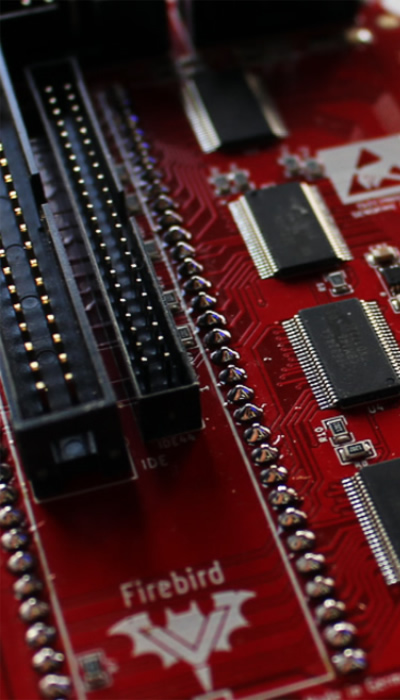 | Apollo Firebird V4 | New Firebird V4+ accelerator for A500/A1000/A2000
- CPU: Apollo 68080 AMMX with 64-bit support
- 3D Support:Maggie 3D unit, truecolor hardware texturing with Zbuffer and Shading
- Memory: 512 MB DDR3
- Video: SuperAGA, RTG, Truecolor 32-bit, up to 1920x1080 / 1280x1024 / 1280x720
- Comes with build-in flicker fixer/deinterlacer
- Audio: 8/16-bit, 56 kHz, 24-bit mixing, 16 DMA voices
- 2x FastIDE controller (CompactFlash and CD-ROM)
- 2 USB ports for mouse and joypad (CD32 emulation)
- 100Mbit Ethernet RJ45 port
- Digital Audio/Video out
- microSD card port (for data exchange)
- FastKick
Order yours now! |
|
| Additional options available direct from Apollo-Computer webshop: | | 128GB CompactFlash card with ApolloOS, CF card reader, Complete Cable Kit, USB mouse, USB Apollo Joypad & the Apollo mouse pad. | |
|
| Why V4 Technology? | 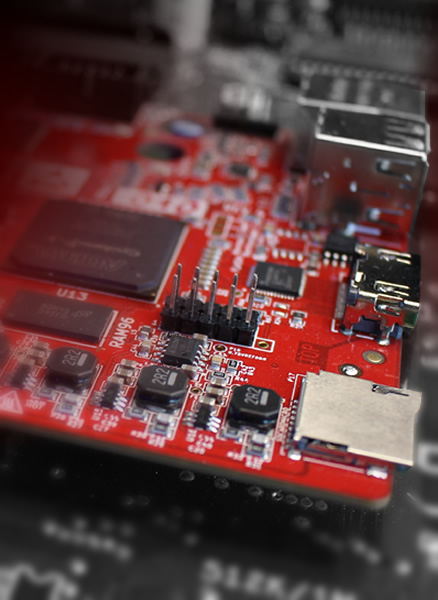 | This way we can ensure high quality production, software and support. That also means high volume production - we will clear the the waiting list very quickly.
On top of that new accelerators come with a bunch of additional features: 16bit Audio, 2x IDE port for CF and CD-ROM, 100 MBit Ethernet and USB Joypad support. Along with SD card port and real-time clock.
V4 technology means C5 FPGA (V4) with twice the capacity of the C3 (V2).
This will allow to fit all the V4 features into the accelerator, and it makes it easier for software developers as all cards have the same features (like sixteen DMA audio voices or 512MB memory).
having same features everywhere does simplify coding by a magnitude. |
|
| | The hardware Phase5 would love to build | Apollo Firebird V4 is most powerful Amiga 500/1000/2000 accelerator working with record-breaking speed as well as state-of-the-art upgrade to native architecture.
This is exactly what Commodore planned for this family of personal computers back in the '90s with the idea of next-gen chipset.
They planned to produce an AGA computer upon a single chip to solve the backward compatibility issues.
This single chip would include Motorola MC680x0 core, plus the AGA chipset. Just like our Apollo Core does today.
We are proud to continue the 68k legacy the way it was meant to be.
It combines the latest chipset, the high-speed memory, the quickest IDE controller with the 68080 - the most advanced 68K CPU to date.
Apollo Firebird V4 offers you the best of native architecture! |
|
| Whats under the hood. | 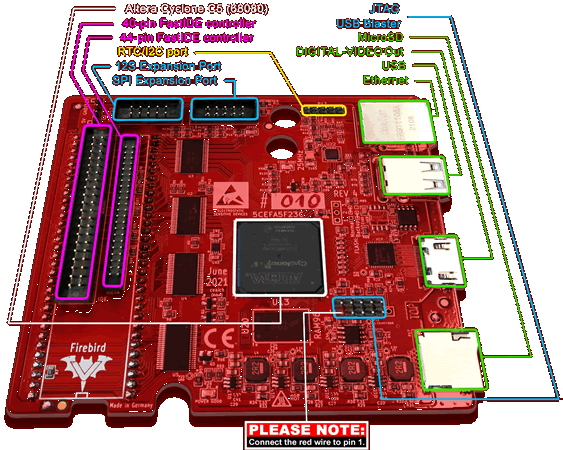 |
|
| The 68080 Processor | The ApolloFirebird V4 is equipped with the 68080. It is a new CPU that you can code as easily as any previous Motorola 68K processor.
This new CPU is the most compatible processor with the whole Motorola 68000 family range and improves them with new unique features.
All tests show that 68080 is much faster than 68060 200Mhz - scores are all confirmed by SysInfo, SysSpeed and AIBB benchmarking tools. |  |
|
| Thanks to AMMX, the 68080 at 80 mhz achieves performance close to the PowerPC 750 at 800 MHz. | |
|
| SuperAGA | | SuperAGA is the fourth-generation native chipset. | 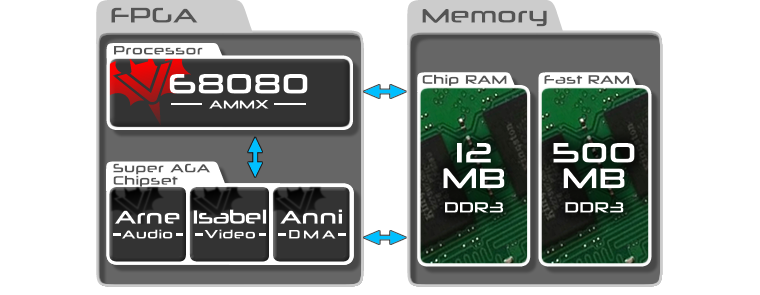 |
| SAGA introduces three new chips:
- Arne - Boosted Audio replacing Paula
- Isabel - Improved Video in this Replacement to Lisa
- Anni - Improved Alice DMA chip
Currently SuperAGA supports all original AGA modes, apart from Super HiRes. Slow ChipRAM is no more!
We integrated RTG API into SuperAGA, so it's the same as if you code the chipset directly.
We wanted to keep the feeling and coding the same as on your favourite computer from the '80s.
SuperAGA brings you 16 sprite DMA channels, sprites 32 pixels wide, a third chunky playfield, 10 planes, a new Picture-in-Picture chunky video mode, and new improved 128-bit DMA engine.
Our new ApolloZoom feature allows you to enjoy a pixel-perfect, centered screen that fills the entire display with the unique ability to shift the image to your liking. | |
| | Arne - Improved Audio | | V4+ is fully compatible with the original 8-bit PAULA audio chip but awesomely improves it to up to 16-bit, quadruple the number of channels, and provide other new features. |  |
| Each voice can play at a fully independent sample rate and has independent 8-bit volume for LEFT and for RIGHT.
As well as this each voice can also play 8-bit or 16-bit samples (you can set each voice fully independent) and the audio dynamic is 24-bit (16-bit sample * 8-bit Volume).
On SuperAGA all 512 MB of memory can be used for audio sample space. | |
| | Isabel - Improved Video | | With more colour registers, better sprite handling, full sprite collision detection & YUV video modes support, the ApolloV4 series really is the next gen Graphics Amiga platform. |  |
| | Anni - Improved DMA | | Not only does the ApolloV4 range provide complete & improved support for the amiga Copper and Bliter, it now provides 3D support via the Maggie3D technology. |  |
| | Maggie 3D goes way beyond anything that has come before, enabling developers to truely deliver the next gen 3D games they could only previously dream of. | |
|
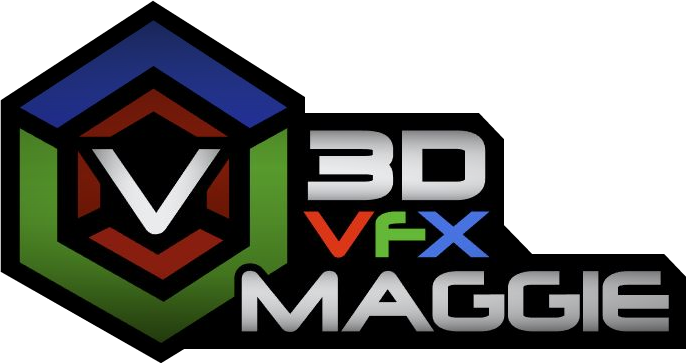 | Maggie is a fully independant texture mapping unit that can execute texture fetches and blits at the same time as executing code on the
CPU. Maggie is fully programmable via chipset registers and follows the design principles of the original Amiga Blitter.
Features:
|
| - Nearest neighbour and bilinear texture lookups.
- Optional Hardware Z-Buffering
- Compressed DXT texture support
- Can blit to any destination memory address
- 32bit Colour output
- Integrated Gouraud shading
- Utilizes the existing Blitter DMA channels and status flags
- Automatic job queing - no need to wait for a blit to complete before issuing the next job with sofware busy-wait loops
|  |
|
| | Maggie makes it possible to create truly rich 2D and 3D graphics, unlike any seen before on Amiga! |
| | |
| Storage | Your new Amiga accelerator offers you extraordinary space and speed, way more that Commodore did.
We push the technology forward and make a big leap into the future of our platform.
The ApolloFirebird V4 improves A600/1200 Gayle IDE. It reaches up to 20 MB/s CompactFlash IDE speed for PIO5 device.
Optionally the ApolloFirebird V4 can be shipped with 128GB of IDE storage space.
Additional microSD slot works with all filesystems supported (FFS, SFS, PFS, FAT32, ext2/ext3).
That extra slot works with most MicroSD and MicroSDHC cards, up to Speed Class 10. |  |
| | This single chip would include Motorola MC680x0 core, plus the AGA chipset. Just like our ApolloCore does today.
We are proud to continue the 68k legacy the way it was meant to be.
It combines the latest chipset, the high-speed memory, the quickest IDE controller with the 68080 - the most advanced 68K CPU to date. |
|
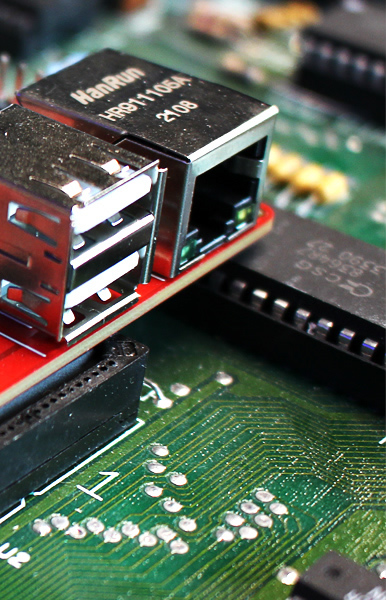 | Ethernet | The ApolloFirebird V4 brings you out-of-the-box Internet connectivity.
The onboard Ethernet driver uses the Anni chip for fast I/O operations.
Our Ethernet can do 64bit DMA and has the potential to reach the full speed of 100 MBit.
The ApolloFirebird V4 Ethernet also supports HW CRC offloading - which currently is not supported by operating system drivers yet.
So here is still big tuning potential for even faster networking! |
|
| Real Time Clock (RTC) | 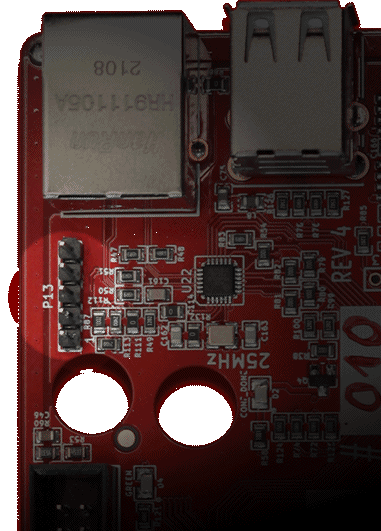 | The ApolloFirebird V4+ is equipped with Real Time Clock (RTC) port.
Making it easy to install the Real-Time Clock and get rid of that nasty 'Battery backed-up clock not found' requester.
Thanks to the additional RTC module, your Amiga will be always up-to-date and right-on-time!
The RTC module is easy to install and available through the ApolloShop. |
|
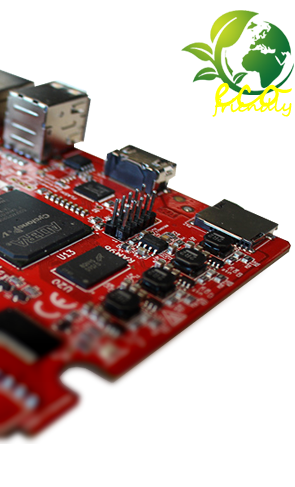 | Eco-technology of the Future | The ApolloFirebird V4 is a low power, 'green', environmental-friendly design.
The ApolloFirebird by itself needs only 2W of power. Super-cool it doesn't even need a fan. It is also very light and fits in the palm of your hand, at only only 2cm high and 10cm wide.
If you want to a small, light-weight powerful accelerator with two IDE controllers, use Ethernet and SDcard to exchange data then Firebird V4 is the best choice.
The ApolloFirebird V4 is the best option for reviving the Amiga! |
|
| *** Important Information *** |
- Please take care with 3rd party power cables, such as the USB blaster should which should not be used as power cable as this can cause the system to malfunction.
- Please be careful when inserting microSD cards and make sure you're actually aiming into the slot.
- DO NOT remove the microSD card outright! The microSD card slot is equipped with a fine spring mechanism.
First press until you hear a click, only then remove the card.
- There is power on the IDE-44 port. Wrong placement on this plug can destroy the device.
- The ApolloFireBird V4 comes with two USB ports allowing you to use USB-Keyboard, USB-Mouse and USB-Gamepad (or Mouse/Joystick via DB9 port)
- When USB joypads are connected to the ApolloFireBird V4 they function as a CD32 joypad, allowing multibutton games to function correctly.
- Please refer to the supplied list for compatible peripherals
- Some units have by design a sliding top cover that makes a sound when moved sideways.
- Performance is application-dependent. See performance
- Functionality varies between different TV/monitor models. Please make sure the display is able to show V4 modes first.
- Speed boost depends on the device PIO mode support.
| |
|
|

